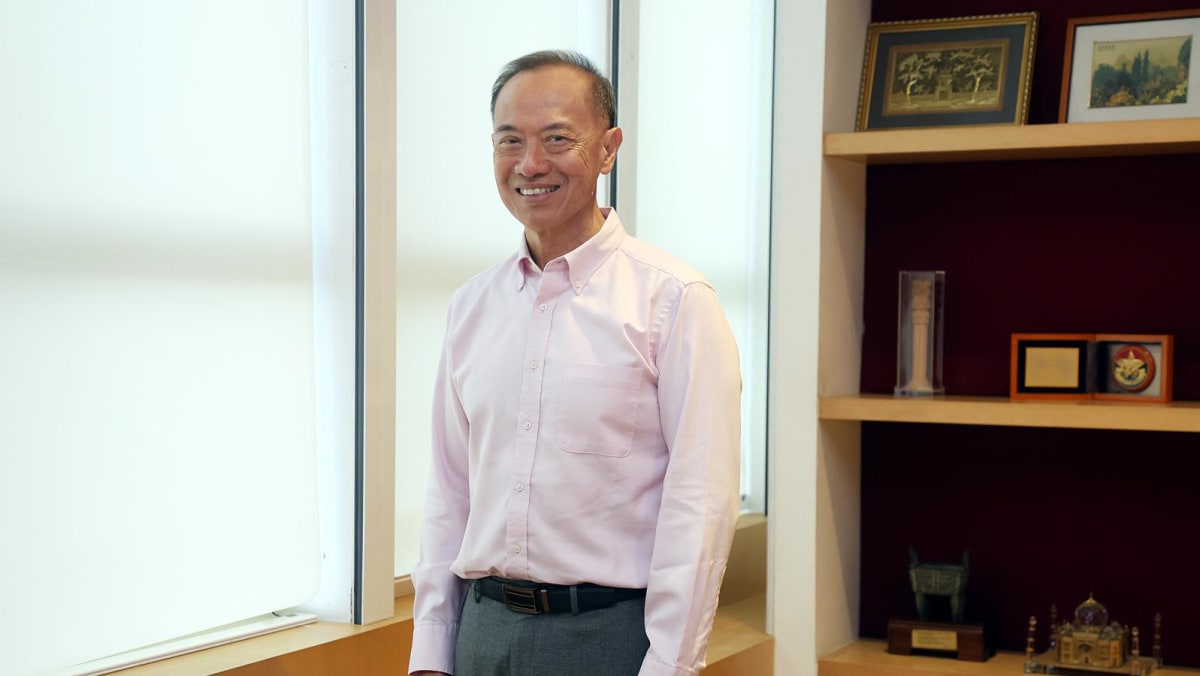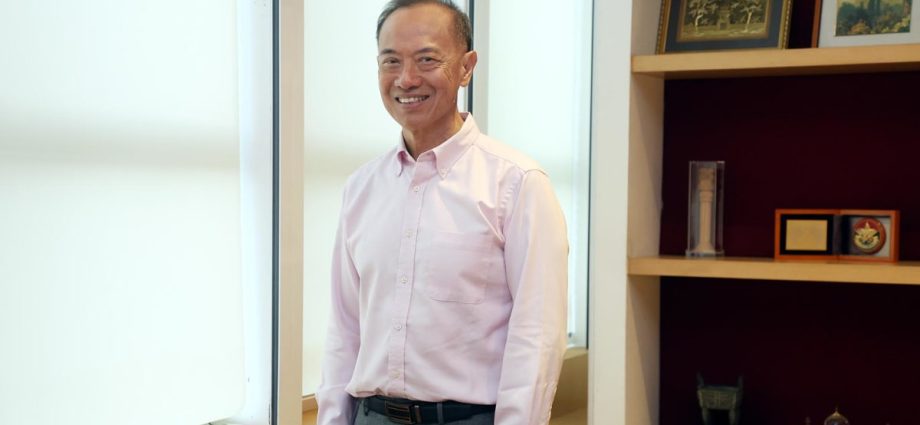
TENSIONS DURING THE 2011 GENERAL ELECTIONS
The turning point was the 2011 General Elections, when changes to the electoral boundaries that year meant that Mr Yeo’s constituency of Aljunied GRC took in a part of the Cheng San GRC that the opposition had done better in than other wards in previous elections.
For two days during the hustings, Mr Lee made comments that “antagonised an already unhappy electorate in Aljunied”, wrote Mr Yeo.
“(Mr Lee) said it would not be the end of the world if Aljunied was lost. If Aljunied voters chose the opposition, they would have five years to repent,” he said, adding that Mr Lee only apologised for the remarks privately to Mr Yeo, but not publicly.
Mr Yeo wrote that he was disappointed with this turn of events.
“Lee Kuan Yew always told us that a public offence could not be made up by a private apology. As a politician, I understood the tactical purpose,” he said, adding that it drew the heat from elsewhere during an election when there was “considerable anger” against the PAP.
While many around Mr Yeo shed tears after his defeat at the ballot box, he did not, even though the loss was painful. Mr Yeo treated every political term as his last, he said.
“I might have to leave politics for various reasons — to take responsibility for mistakes, on a matter of principle, or if the voters no longer wanted me,” he wrote of his mindset as a politician.
A few days after his defeat, Mr Yeo announced that he would retire from parliamentary politics.
But the book documented how sometime later after Mr Yeo’s final Cabinet meeting, Mr Lee called him on the phone with a “startling offer” to get him back into Cabinet by vacating his seat in Tanjong Pagar GRC.
“When Lee Kuan Yew calls you up to make a proposal, I took it very seriously and looked at it all around and discussed it with my wife and made a decision,” he said.
Mr Yeo would have declined Mr Lee’s offer, as getting back into Cabinet through a by-election would put him in a weak position, wrote Mr Yeo.
But this decision became unnecessary after Prime Minister Lee Hsien Loong told Mr Yeo that he was one of a few who could beat Dr Tan Cheng Bock who was the presidential hopeful in the 2011 Presidential Election. Mr Yeo offered to run should he be needed as a “spare tire in an emergency”, though this also did not materialise.
Later, PM Lee asked Mr Yeo to step down from the PAP’s Central Executive Committee (CEC), which made Mr Yeo realise that his time in the party was up.
“I won my place in the CEC on my own merit and I still had a year to go. So when I was asked to stand down I took that as a signal that there’s really no role for me to play in the party … I was disappointed but I accepted it,” said Mr Yeo.
“I considered resigning from the party. But I was advised by friends that I should not,” he said. Today, Mr Yeo is still a party member but does not attend its formal meetings.
FINDING CLOSURE
Following the watershed 2011 elections, Mr Lee Kuan Yew as well as former Prime Minister Goh Chok Tong also resigned from the Cabinet. Mr Yeo joined the private sector, even though he was approached by Mr Lee Kuan Yew who asked him if he needed help to get into Temasek Holdings or GIC.
Two years after the elections, in September 2013, Mr Yeo bumped into Mr Lee’s press secretary by coincidence, who informed him about the latter’s declining health and urged Mr Yeo to go see Mr Lee at his office.
“I replied that I had no reason to invite myself. It would be different if he asked to see me. However, what (she) said weighed on me,” said Mr Yeo. “Without Lee Kuan Yew, I would not be where I was.”
So, Mr Yeo reached out to Mr Lee’s office, offering to convey birthday wishes as Mr Lee had turned 90. The offer was immediately accepted and, together with Mr Yeo’s wife, the two men met for the first time following 2011’s events.
The book also described how Mr Yeo found out later that Mr Lee had tried to recommend him to take over Mr Lee’s position on the JP Morgan International Advisory Board.
Their last meeting was at the 2014 National Day Parade. Mr Lee died on Mar 23 the following year.
During the interview, Mr Yeo said the chapters on his interactions with Mr Lee were not challenging to write as he had penned things that he felt needed to be said.
While Mr Yeo stressed that he did not intend to critique Mr Lee Kuan Yew as a Singapore leader and that others are more qualified, he sought to provide a balanced and honest view of his own interactions with Mr Lee.
“I presented an overall picture (and) a total assessment of my experience with him. And I did ask a few friends to run through my chapters to give me their views, their reactions, whether it was too positive or negative, whether it was too kind or unkind.
“But no major changes (needed), because I was conscious of the balance right from the outset, in the words, and in the choice of pictures,” he said.
Of Mr Lee, Mr Yeo wrote in the book that his name is “inseparable from the idea of Singapore”.
Years after the death of Singapore’s founding father, Mr Yeo would launch translated versions of Mr Lee’s memoirs in other countries such as France and Croatia, and noted how there was even a contraband copy of Mr Lee’s The Singapore Story in Russian that circulated throughout the former Soviet Union.
“Singapore was his obsession and everything he lived for. His imprint is everywhere,” wrote Mr Yeo.

